A record number of countries will hold elections this, including Britain on July 4 and the United States on November 5.
These two great powers — each with a veto at the UN — have enjoyed a bond that has survived for so long, is it known on both sides of the Atlantic as “the Special Relationship.”
There have been stand-offs: Britain refused to join the war in Vietnam, and when Argentina seized the Falkland Islands in 1982, the US did not intervene. But Ronald Reagan and Margaret Thatcher worked in tandem to bring down the Berlin Wall.
And if the view on Ukraine and Gaza is not always the same, there is a shared commitment to the sovereignty of Russia’s neighbors and to a peace in the Middle East that secures the rights of Jews and Palestinians alike.
In April, former British prime minister David Cameron, now foreign secretary — in which role he oversees the intelligence service MI6 — was in Washington to discuss the release of another $60 billion in American aid to Ukraine.
He spent time with secretary of state Antony Blinken, then flew south to Florida and Mar-a-Lago, the home of Donald Trump who rarely hosts senior politicians from abroad.
But how might this Special Relationship look a year from now if both Blinken and Cameron are gone, along with the parties they represent?
America votes on the second Tuesday in November, and few would be bold enough to predict the outcome or whether President Biden, who turns eighty-two that month, really can see out another term. And Trump has a mixed message over support for Ukraine and whether climate change is real or a panic over nothing.
Reading the future is less risky in Britain, where opposition leader Sir Keir Starmer and his Labour Party have a double-digit lead on the Conservatives, in power since 2010. During that time, no fewer than five prime ministers have been through Downing Street. David (now Lord) Cameron fell on his sword after losing the 2016 Brexit referendum; his successor Theresa May was toppled by Boris Johnson, who broke the lockdown rules during Covid and resigned in favor of Liz Truss, who lasted a mere seven weeks. Short of another revolt, incumbent Rishi Sunak must face the electorate on July 4.
Sunak is Britain’s first prime minister of Asian descent and, at forty-four, the youngest in more than 200 years. By contrast, Keir Starmer only entered politics at fifty. Before that he worked as a human-rights lawyer and then as director of public prosecutions.
Now sixty-one, he took charge of Labour after Jeremy Corbyn lost the 2019 election with a campaign that appealed to the left but was marred by antisemitism and confusion over where he stood on defense and Britain’s decision to leave the European Union.
So the future of the Special Relationship looks like Biden or Trump in a diplomatic dance with Keir Starmer and a party that has spent fourteen years in the wilderness.
But if the ties that bind the world’s two post-powerful English-speaking nations are that strong, does it matter who has the top job? Events down under in the 1970s offer a clue of how quickly things can go wrong.
When Sir Robert Menzies was first sworn in as prime minister of Australia, King George Vl was on the throne. By the time he retired in 1966, he had been a confidante of Harry S. Truman, Dwight Eisenhower, JFK and Lyndon B. Johnson. Canberra was a less important center of power than London, but the engagement with DC was just as strong.
Like Menzies, his successor Harold Holt came from the center-right of politics and believed in spending big on defense, with a military whose numbers were swelled by conscription or national service. Holt summed up his foreign policy as “all the way with LBJ” and believed in the “domino theory”: if one country falls to a hostile force, others will follow.
In World War Two, the Aussies had watched helplessly as Japan came storming towards them. By April 1942, just four months after Pearl Harbor, Hirohito’s army had swept through Hong Kong and Singapore, the Philippines and the Dutch East Indies — now Indonesia and Australia’s closest neighbor — from where the Japanese planes strafed the northern ports.
By the 1960s, Cuba, China, North Korea and parts of Europe were in the grip a new enemy, communism, and Australia sent more than 60,000, troops to Vietnam in support of its closest ally.
By 1972, the left-wing Australian Labor Party (note the party uses the US spelling of their name) had been in opposition for twenty-three years when, under a witty young lawyer named Gough Whitlam, they won a landslide. Whitlam was given to quoting Marx and Fidel Castro and had no time for the Richard Nixon and his Republicans. He abolished conscription and along with serving as PM, made himself foreign minister.
Whitlam moved fast, breaking relations with Taiwan and moving the Australian embassy to Beijing. The US would only follow six years later under President Carter. He abandoned Saigon, recognized both North Vietnam and North Korea and became the first Australian PM to visit Moscow. Relations with Washington came under strain. In 1975, the Labor Party lost control of the all-powerful Senate and could not pass its money bills. Whitlam was dismissed and his party lost the election that followed.
It would be fifteen years before Australian and US forces served together again. In 1990, they expelled the Iraqi army from Kuwait during the First Gulf War. The Labor Party had been returned to power under former union boss Bob Hawke who, like Starmer, took the center ground. When he was granted the rare honor of addressing both Congress and the Senate in a joint sitting, Bob Hawke made clear that Australia was very much in the American sphere of influence.
In an exclusive interview for this story, Sir Keir Starmer spoke about British ties with the US that he said were “vital to our shared security.
“Political leadership is about dealing with turbulence and change, whether it’s the pandemic or international conflicts that may be far away but have deep geopolitical and economic impacts.
“Alliances like NATO work because they have strong leadership. That’s why my Labour Party is unshakably committed to it and if we are in government we will take a leading role to shape its future and protect our security. Together with allies like the US and others, we can work in lockstep in the name of global security and prosperity.”
But he said the links went a lot deeper than government and diplomacy.
“Almost 5 million Americans visit Britain every year, and they spend around £6 billion in our shops, pubs and restaurants. More than 4 million Brits go to the US on holiday, business or to visit family. It extends into the culture we enjoy, music we play, the films we watch and the books we read.”
He said that while there were differences in the legal systems, “at the heart of our law is a deep sense of security, fair play and concern for human rights.”
Jane Hartley was American ambassador to Paris under President Obama and now heads the US embassy in London. “I’ve seen up close how our two militaries underpin global security and defend democracy around the world,” she said, adding that, “our countries are rallying democratic partners in support of Ukraine.”
In or out of an embassy, Hartley has a record for speaking her mind. Ukraine, she said, had the right to “defend itself against President Putin’s aggression.”
On the Middle East, she said Israel also had the right to self defense, but that together the US and Britain were “determined to ultimately bring an end to conflict with the goal of a two-state solution.”
Ambassador Hartley said trade between the UK and America had risen by more than 15 percent in 2023, “buffering our people from the worst of global economic headwinds and preserving livelihoods in both countries.”
In her opinion, the coming elections did not pose a problem.
“Administrations come and go — as they should in healthy democracies — but our partnership has thrived. Together, we stand for democracy and liberty, free markets and free expression, human rights, and the right of every nation to its sovereignty and security.”
At the British Embassy in Washington, her opposite number is Dame Karen Pierce, who has spent four decades in diplomacy and served as ambassador to Afghanistan and at the UN.
Dame Karen said shared endeavors in war and peace “are part of the special relationship that everyone can cite.” And this history, she said, boded well for the future to “deal with the new challenges of the twenty-first century — such as AI and economic security — with the same tenacity and strength and purpose.” The goal lay in “strengthening our close allyship with the US by forging common frameworks.”
Dame Karen agrees with Jane Hartley on the need for freedom. “Sustaining open societies and open markets is the key challenge of our time. And the US and UK are determined to meet it together.”
In 2010, on his first visit as PM to the Obama White House, David Cameron warned the British not to become “obsessed” with America, saying they were destined to remain the “junior partner” and he wanted to lay an equal place at the table for others, including India. Those were difficult days as, new in No. 10, he struggled to distance himself from the era of Tony Blair and George W. Bush and the wars in Iraq and Afghanistan that had taken so many lives and appeared to have no end. It didn’t help that the visit came just three months after BP was accused of spilling vast amounts of oil in the Gulf of Mexico.
But by the time he stood down in 2016, relations were unblemished.
In diplomacy, Keir Starmer believes in the importance of what he calls “honest conversations.”
“Even when there are differences, there is still so much that binds us together. And as the relationship deepens, that space to disagree can become more sacrosanct, because it’s built on honesty. That is very much the case between the United States and Britain.”



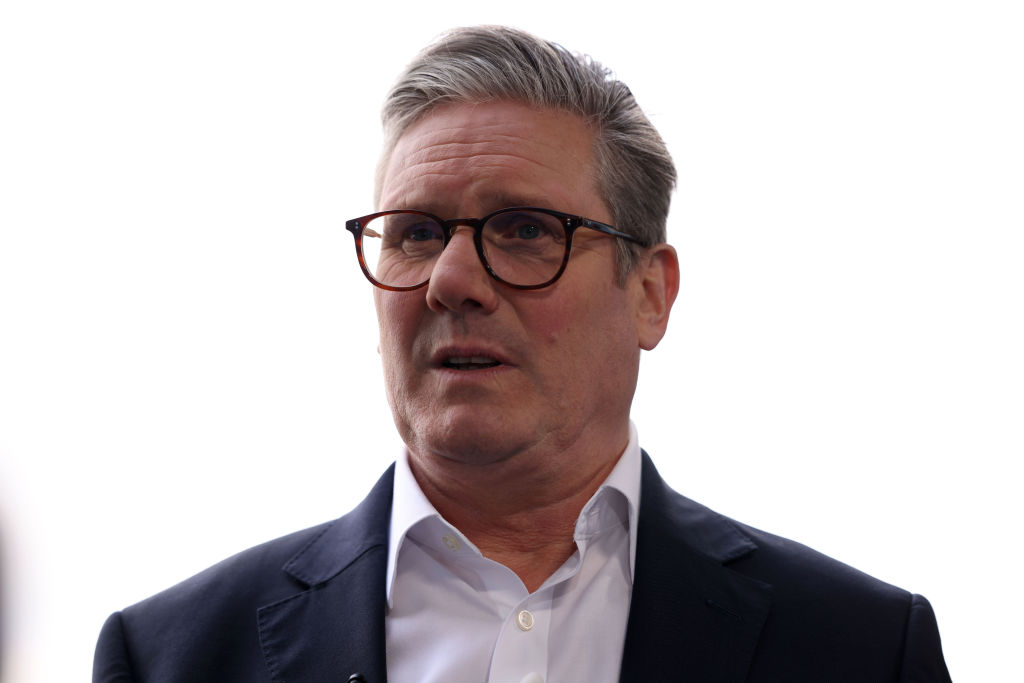






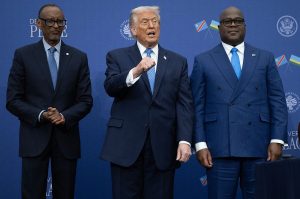
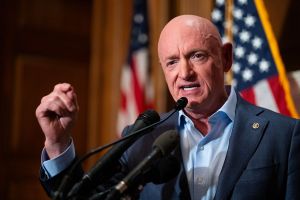





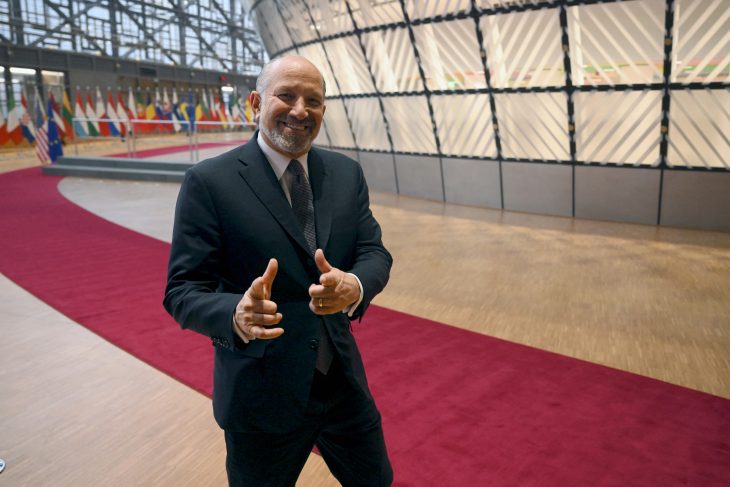
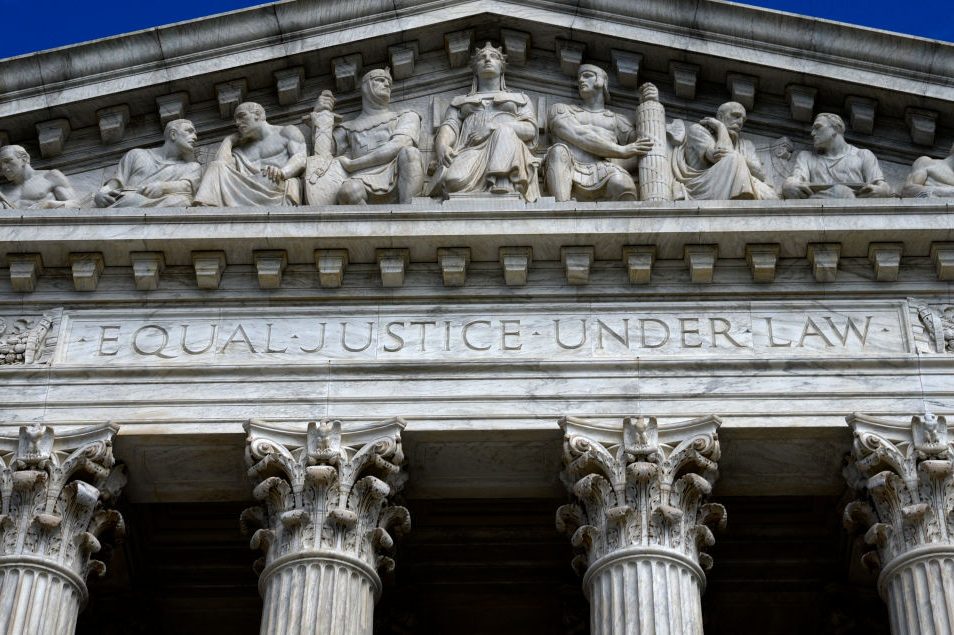







Leave a Reply